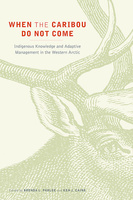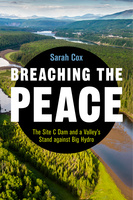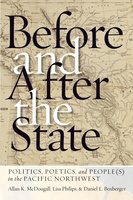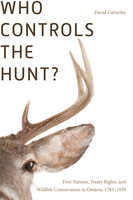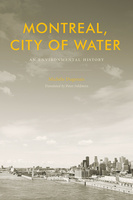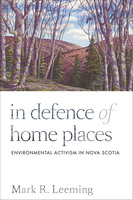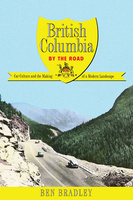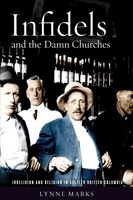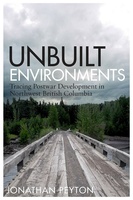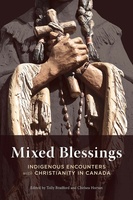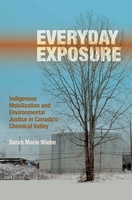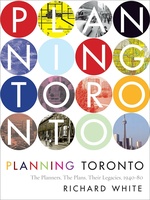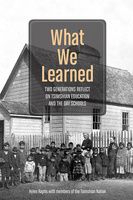When the Caribou Do Not Come
Indigenous Knowledge and Adaptive Management in the Western Arctic
When the Caribou Do Not Come highlights the knowledge and perspectives of northern Canadian communities that have been dealing with caribou population fluctuations for generations.
Breaching the Peace
The Site C Dam and a Valley’s Stand against Big Hydro
Award-winning journalist Sarah Cox recounts the prolonged battle, led by farmers and First Nations, to stop the cripplingly expensive and environmentally irresponsible Site C dam.
Before and After the State
Politics, Poetics, and People(s) in the Pacific Northwest
Documenting the profound impact of state formation on individuals and communities in the Pacific Northwest of the nineteenth century, Before and After the State reveals how national narratives and constructed identities were used in the service of nation building.
Who Controls the Hunt?
First Nations, Treaty Rights, and Wildlife Conservation in Ontario, 1783-1939
Tracing the connections between colonialism and the early conservation movement in Ontario, Who Controls the Hunt? examines the contentious issue of treaty hunting rights and the impact of conservation laws on First Nations.
Montreal, City of Water
An Environmental History
Montreal, City of Water investigates the development of the city over two centuries, tracing the relationship between the city’s inhabitants and the waterways that ring its island and flow beneath it in underground networks.
In Defence of Home Places
Environmental Activism in Nova Scotia
In Defence of Home Places examines the diversity of environmental activism in Nova Scotia, placing its early social and legislative successes and eventual weakening and division within a national and international framework.
British Columbia by the Road
Car Culture and the Making of a Modern Landscape
By offering behind-the-scenery glimpses of how boosters and builders modified the BC landscape and shaped what drivers and tourists could view from the comfort of their vehicles, this book confounds the idea of “freedom of the road.”
Infidels and the Damn Churches
Irreligion and Religion in Settler British Columbia
The first major historical study of secularism in Canada, Infidels and the Damn Churches traces the origins of irreligion in BC to the unique character of the region’s settler society.
Unbuilt Environments
Tracing Postwar Development in Northwest British Columbia
This book looks at the long-term social and environmental effects of imagined, abandoned, and failed resource-development schemes in northwest British Columbia.
Mixed Blessings
Indigenous Encounters with Christianity in Canada
This diverse and cutting-edge collection offers fresh insights into the complex and charged subject of Indigenous encounters with Christianity in Canada from the 1600s to the present day.
Everyday Exposure
Indigenous Mobilization and Environmental Justice in Canada’s Chemical Valley
Everyday Exposure documents the adverse health effects experienced by Aamjiwnaang citizens in the heart of Canada’s Chemical Valley and argues for a transformative and experiential “sensing policy” approach that takes the voices and experiences of Indigenous citizens seriously.
White Settler Reserve
New Iceland and the Colonization of the Canadian West
This innovative history of a reserve for Icelandic settlers connects the dots between immigration and Indigenous dispossession in western Canada.
Fragile Settlements
Aboriginal Peoples, Law, and Resistance in South-West Australia and Prairie Canada
Fragile Settlements compares the historical processes through which British colonial authority was asserted over Indigenous people in southwest Australia and prairie Canada from the 1830s to the early twentieth century.
Planning Toronto
The Planners, The Plans, Their Legacies, 1940-80
This lavishly illustrated book will stand as the definitive history of Toronto postwar planning and of the impact that planning has had on the city and its surrounding metropolitan area.
What We Learned
Two Generations Reflect on Tsimshian Education and the Day Schools
Moving beyond the more familiar stories of residential schools, two generations of Tsimshian students recall their experiences attending day and public schools in northwestern British Columbia.

